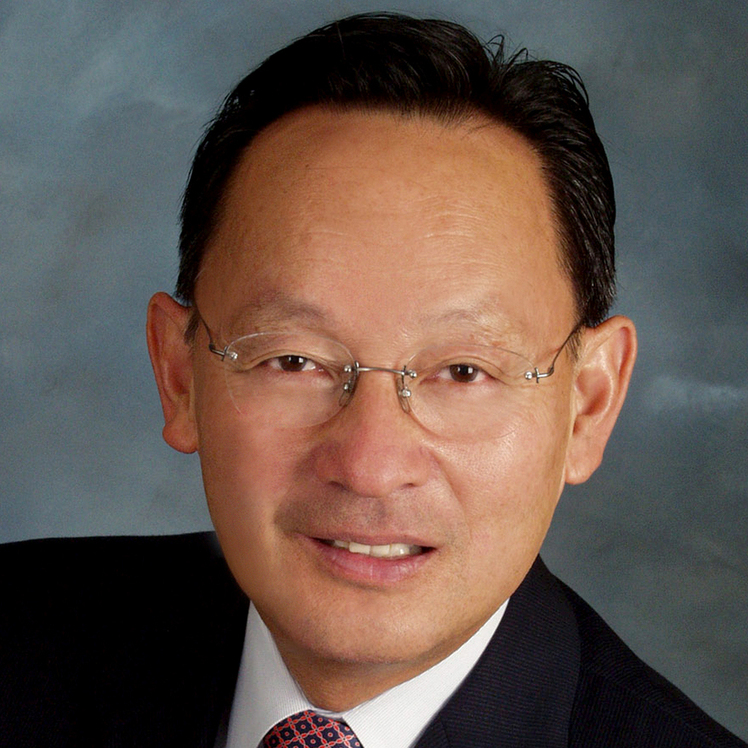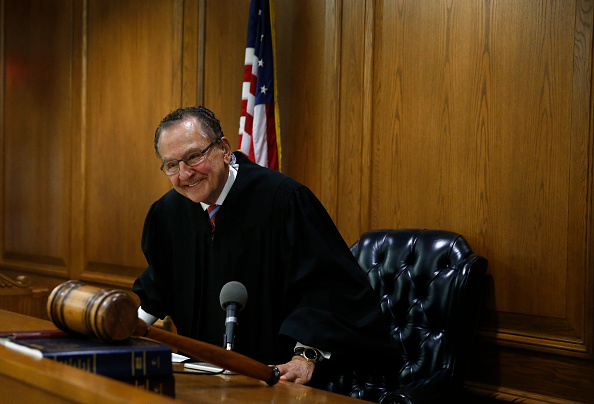Judicial independence needs to be protected from both internal and external threats

Ming Chin
Attacks on judicial independence are almost as old as the American republic itself. They date back at least to 1805, when President Thomas Jefferson tried but failed to use the impeachment procedure to remove U.S. Supreme Court Justice Samuel Chase, in part because of the content of his decisions.
But most people agree that attacks are now on the rise. As retired Supreme Court Justice Sandra Day O’Connor has written, judges “have become central villains on today’s domestic political landscape,” and “the breadth and intensity of rage currently being leveled at the judiciary may be unmatched in American history.”
We find stark examples of O’Connor’s observation in initiative measures that have appeared on state election ballots in recent years. One in South Dakota would have allowed judges to be sued or criminally prosecuted for their decisions (the measure was defeated by 90-to-10 percent in 2006). A proposed Colorado ballot measure would have imposed a retroactive term limit for judges that would have removed a majority of the state’s sitting supreme court justices and almost 40 percent of its courts of appeal (it was defeated in 2006, as well). A proposed 2006 action in Montana would have allowed judges to be recalled at any time for any reason.
Of course, attacks on judicial independence do not come only in the form of ballot initiatives. In 2010, after a nationally orchestrated campaign, three Iowa Supreme Court judges were voted off the bench in a retention election for joining a unanimous decision declaring that same-sex marriage is legal under the Iowa state constitution.
Sadly, the increasing effort to politicize the judiciary is partly a self-inflicted wound, as advertising in judicial elections has taken an increasingly negative tone. For example, the 2008 race for the top seat on Michigan’s Supreme Court produced what one nonpartisan judicial watchdog group called an “orgy of negativity.” In a 2004 election for a seat on the Illinois Supreme Court, an Illinois State Bar Association committee determined that the candidates’ advertisements were inflammatory and misleading, and asked the candidates to renounce them. Both declined. And the 2004 race for a seat on West Virginia’s Supreme Court saw what one commentator called “the nastiest mudslinging in the history of modern American court campaigns.”
These developments are just a part of a larger trend of increasing influence of politics in judicial elections. According to reports, campaign contributions in judicial races have skyrocketed, with some successful state supreme court candidates raising more money than candidates for the U.S. Senate. As the national Justice at Stake campaign has pointed out, “cash has become king in judicial elections.”
These trends should be of grave concern to anyone who cares about an independent and impartial judiciary. When judges rely on campaign donors for their jobs, a public perception of judicial bias and favoritism inevitably arises. This perception threatens to diminish the courts’ effectiveness because, as the Supreme Court has noted, “the legitimacy of the Judicial Branch ultimately depends on its reputation for impartiality and nonpartisanship.” Justice Anthony Kennedy put it this way: “The law commands allegiance only if it commands respect. It commands respect only if the public thinks the judges are neutral.”
Two relatively recent decisions by the Supreme Court both illustrate the problem and threaten to exacerbate it. In June 2009, the court held in Caperton v. A.T. Massey Co. that an elected state supreme court justice should have recused himself from hearing a corporation’s appeal from a $50 million verdict, because the corporation’s CEO, after the verdict but before the appeal, spent $3 million getting him elected. Six months later, in Citizens United v. Federal Election Commission, a closely divided court invalidated laws prohibiting corporations and labor unions from making independent campaign expenditures that expressly advocate the election or defeat of a particular candidate. According to the four dissenters in Citizens United, such laws are permissible because of “the distinctive threat to democratic integrity posed by corporate domination of politics.” The dissenters also warned that the majority’s decision would “unleash the floodgates of corporate and union general treasury spending” in judicial elections, and would curb the states’ ability “to place modest limits on corporate electioneering even if they believe such limits to be critical to maintaining the integrity of their judicial systems.”
Of course, maintaining judicial impartiality and independence is no small task—it requires hard work and deliberate action. As O’Connor once observed: “Judicial independence does not just happen all by itself. It is tremendously hard to create, and easier than most people imagine to destroy.” But it is imperative to preserve and protect, because it is a cornerstone of the rule of law and our democracy.
Our country’s founders were quite clear about the crucial role of an independent judiciary. In appointment letters to our nation’s first Supreme Court justices, President George Washington described the judiciary as “the chief pillar upon which our national government must rest” and “the keystone of our political fabric.”
In urging ratification of the Constitution, Alexander Hamilton wrote in Federalist 78, quoting Baron de Montesquieu: “There is no liberty, if the power of judging be not separated from the legislative and executive powers.”
The late Chief Justice William Rehnquist put it this way: “It is not enough to have an impressive catalogue of individual rights in the Constitution if the judges who are called upon to enforce these rights are not truly independent.” And so, judicial independence “is every bit as important in securing the recognition of the rights granted by the Constitution as is the declaration of those rights themselves.” Indeed, Rehnquist called the principle of giving independent judges responsibility for enforcing the guarantees of a written constitution “probably the most significant single contribution the United States has made to the art of government.” He added: “Other countries before or at the time of the adoption of our Constitution had adopted declarations of rights, but it was the United States who put teeth in these declarations by providing the means by which the individual could enforce them.”
Rehnquist’s words were brought home to me many years ago when I met Emil Constantinescu, who was then the president of Romania and in the midst of forming a fragile democracy. He told me he once had been a judge under former President Nicolae Ceaușescu and quit to become a geologist. When I asked him why, he said he got tired of Ceaușescu telling him how his decisions ought to come out.
As O’Connor has warned, “in these challenging and difficult times, we must recommit ourselves to maintaining the independent judiciary the framers sought to establish.”
And, as the former Florida Supreme Court Justice Harry Lee Anstead once said: “The rule of law is not a liberal value or a conservative value and it certainly is not a Republican or Democratic value … it is an American value.” Because of the inextricable link between independent judges, the rule of law, and democracy, threats to judicial independence necessarily threaten our democratic system. Let us together insure that our judicial system continues to be fair, impartial, independent, and dedicated to the rule of law. If we do that, then our democracy will remain strong and enduring.
The Honorable Ming W. Chin was sworn in to the California Supreme Court in March 1996. Justice Chin has authored landmark decisions in areas such as DNA, toxic tort insurance coverage, surrogate parents, and hate crimes. He was a member of the National Academies’ Committee on the Development of the Third Edition of the Reference Manual on Scientific Evidence. He is the vice chair of the California Judicial Council and has chaired the Council’s Commission for Impartial Courts, Court Technology Advisory Committee, and Science and the Law Steering Committee.
Write a letter to the editor, share a story tip or update, or report an error.



